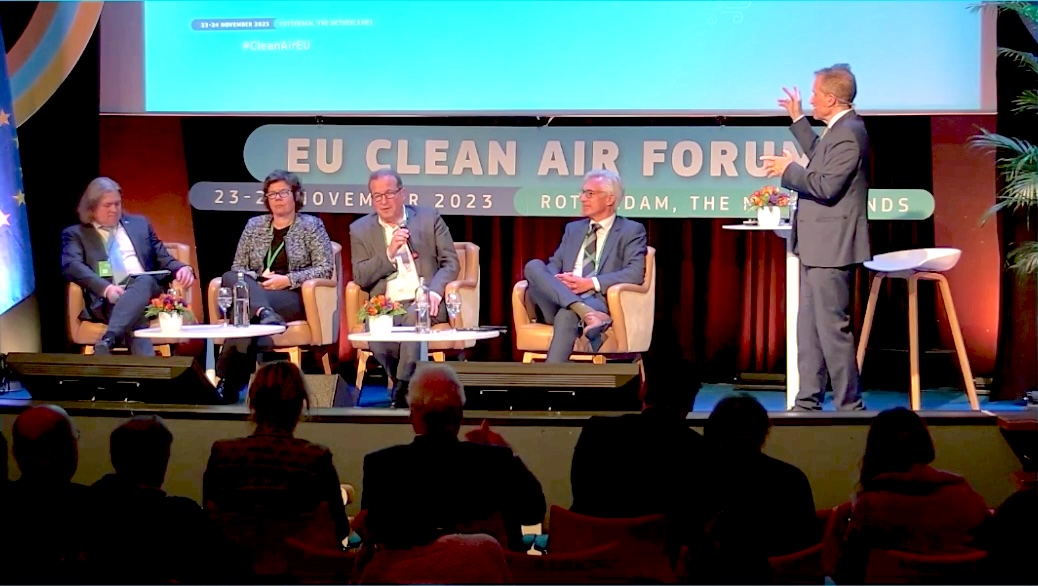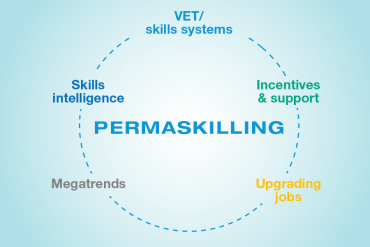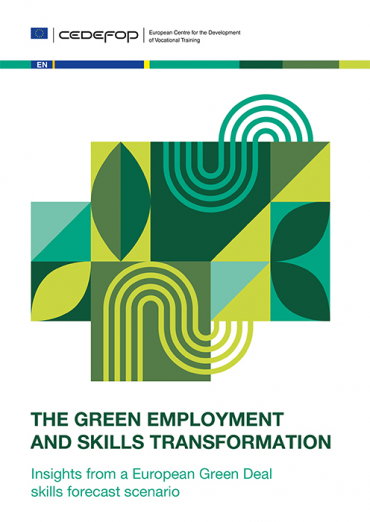The European Green Deal (EGD) is good news for employment in most sectors, but its benefits will not materialise automatically, Cedefop Executive Director Jürgen Siebel told the Clean Air Forum 2023.
The event is organised by the European Commission’s DG Enviroment in Rotterdam over two days (23 and 24 November) and brings together decisionmakers, stakeholders and experts from across the European Union to focus on how to further reduce and prevent air pollution.
Mr Siebel said that Cedefop data estimate that an additional 2.5 million jobs (more than +1%) will be created by the year 2030 thanks to the implementation of the EGD, not only in sectors driving the green transition, but also in administrative and support, legal, accounting and consulting services, computer programming and information services.
However, he warned that the estimate may turn out to be optimistic: this forecast will not become reality by itself – it is a ‘maximum possible’ scenario sketching the employment potential of the green transition under the assumptions that:
- The EGD is fully implemented, and its targets are reached by 2030;
- people have access to training;
- we will have no labour and skills shortages that could derail progress.
Cedefop’s Executive Director noted that a successful transition requires management skills, data analytics skills as well as soft and people skills to help citizens and companies think and act greener.

He pointed out that according to Cedefop’s online job advertisements analysis, there is a boom in demand for professionals in green-transition-jobs – jobs for highly trained people (scientists, R&D researchers, specialised engineers) that invent Greentech and find ways to implement it.
‘Professionals are not the largest group, but the fastest growing group. We sometimes call them thyroid occupations. They are small in terms of employment, but not having them puts the entire green transition at risk.’
Nevertheless, the Agency’s green foresight – Mr Siebel added – suggests that many different types of jobs support the green transition, and they have no colour:
‘It is not only about high-level green engineering and research skills and the skills we often think of relating to green jobs (installing solar panels, making buildings energy efficient, servicing electronic vehicles). A successful transition requires management skills, data analytics skills as well as soft and people skills to help citizens and companies think and act greener.’
Referring to the obstacles of skills shortage and skills mismatch, Mr Siebel underlined that a skilling revolution is needed, and that can be achieved by upscaling VET and adult learning, governance innovation and better matching skills and jobs, as well as working on the supply side to invest in, and provide, quality jobs.
Watch: The European Green Deal creates jobs, but...




